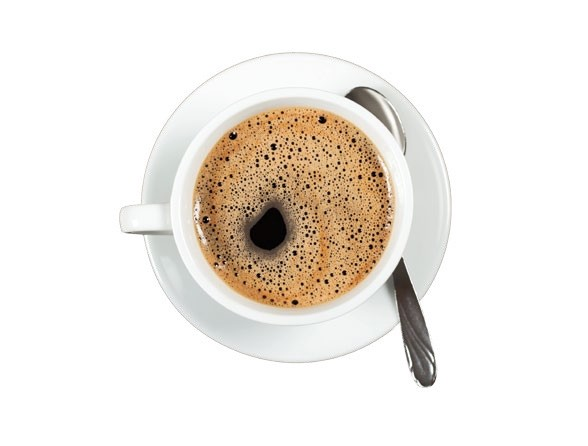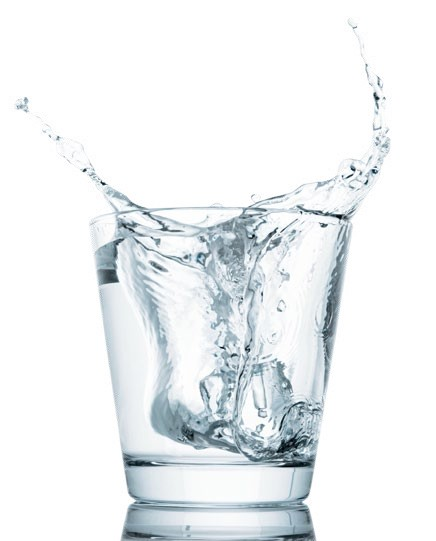What you eat can have an enormous impact on your brain’s performance.


What you eat can have an enormous impact on your brain’s performance.
You probably know that diet can help keep your brain functioning properly well into old age, but did you know that certain foods can also improve the way this important organ thinks, feels and behaves today. Here, we find out what should be on your plate and why.

Celery Fights Inflammation and Keeps Your Brain Young
Filling up on foods like celery and yellow pepper may help fight age-related inflammatory chemicals that inhibit memory and learning. A substance called luteolin found in certain foods seems to counteract this. Scientists are not yet sure how much of these vegetables we need to eat to fight inflammation, but sticking to the recommended daily proportions of fruit and vegetables is a good place to start.

Coffee Protects Your Brain From Harm
It’s often demonised, but when it comes to brain health, a daily cup of coffee can be protective. It seems to reinforce what’s known as the blood – brain barrier, which protects your central nervous system from chemicals and other pollutants. It’s good news all round for coffee lovers, with research showing that caffeine also protects the blood-brain barrier from the harmful effects of cholesterol.

Ice-cream Stimulates Your Brain’s Happy Centre
When scientists tested the effect of ice-cream on the brain, they found it revved up activity in the part of the brain that controls positive emotions and feelings of reward. But don’t get too excited – it only took one teaspoon to get these results.
The flipside to this is that eating fatty, sugary treats like ice-cream too often also changes the brain, but not in a good way. It can trigger a need to eat more of them – which brings us back to what we already know, the only way to avoid weight gain is to stick to a healthy diet most of the time.

Eggs Fight Agerelated Brain Shrinkage
As we get older our brains decline in size, by about 0.5 per cent per year after the age of 50. Keeping your brain “big” seems to be the key and how much it shrinks seems to strongly correlate with levels of vitamin B12 in your blood – high levels equal the least shrinkage because science has found that B12 helps protect the brain’s nerve cells. Keep your B12 levels in good shape by eating fish, red meat and eggs.

Red Meat Can Speed Up How Fast You Think
It’s well known that iron boosts the development of the brain in babies, but it also keeps it functioning at full pelt in adulthood as well. A US study found that women performed better on cognitive tasks when (even minor) iron deficiencies were reversed. Include more iron-rich foods in your diet like red meat and dark leafy greens – and see your doctor if you suspect you might be anaemic.

Blueberries Boost Your Concentration
A large helping (200 g) of blueberries in the morning, eaten on their own or in a smoothie, can improve your focus in the afternoon by 15 to 20 per cent. It’s thanks to the flavonoids in the berries, say the researchers, which help to increase the flow of blood and oxygen to the brain. Strawberries have a similar effect.

Urmeric Could Fight Depression
It’s by no means a replacement for medication during an acute attack of depression, but curcumin, an ingredient in the spice turmeric, has been found to increase levels of a substance – brain-derived neurotrophic factor BdnF – that is often found lacking in patients with major depression. In fact, most antidepressants work partly by increasing levels of BdnF. So try adding a little spice to your next meal and you might just feel a little better.

Strawberries Switch on the Brain’s Natural Detoxers
One of the theories as to why our brain performance worsens as we age is that there’s a build–up of proteins and other biochemical waste in the brain.
Normally this is cleared by ‘cleaning cells’ in the brain, but as we age these start to slow down and may even damage healthy cells. Berries come to the rescue once again, with science showing that a high intake of these little gems seems to revive the cells’ cleaning capacity.

Water Makes Your Thoughts More Energy Efficient
When teens were tested for their ability to perform mental tasks in a hydrated or dehydrated state, the results showed that, although the outcome was the same for both groups, those who were dehydrated expanded more energy.
This means you’re more likely to feel tired sooner if you’re dehydrated. It’s like running a petrol guzzling car rather than an energy efficient one. even though they go at the same speed, the petrol guzzler will run out of fuel first.

Salmon Improves How Brain Cells Talk to Each Other
Every thought and function in your brain is triggered by your brain cells talking to each other. For this process to take place efficiently we need good amounts of the omega-3 fat dha, of which salmon is a rich source. “our brain and body are deficient in the mechanism to make dha; it has to come from the diet,” say the researchers who recommend eating salmon three times a week.

Walnuts Might Help You to Come to the Right Conclusion
If your decision-making powers need a boost, consider including half a cup of walnuts in your daily diet. The brain-enhancing nutrients they contain can help you judge what’s true or false in a situation, say researchers.
It won’t make you a critical thinker, but students and young professionals in mathematics, physics or other sciences that involve a great deal of critical thinking or decision-making could benefit from regularly eating walnuts.























